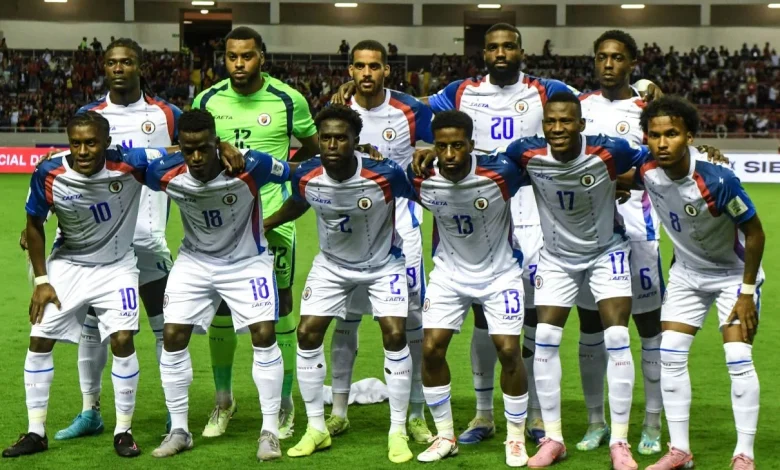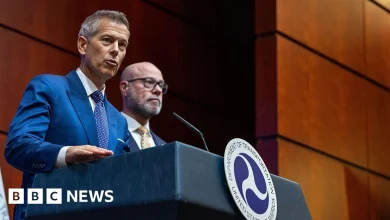Haiti’s World Cup Qualification Journey Complicated by Violence and Displacement

Haiti’s journey in the qualifying rounds for the 2026 World Cup has been marked by significant challenges, primarily due to its exclusive reliance on away matches. In a recent encounter in Managua, Nicaragua, the harsh weather conditions—rain, wind, and power outages—did little to deter a passionate crowd. Defender Duke Lacroix recounted the chaotic atmosphere, where even the storm couldn’t dampen the spirits of the local fans. However, despite the adversities, Haiti secured a decisive 3-0 victory, showcasing their ability to compete under strenuous circumstances.
As Haiti approaches the final match of their qualification campaign, the contrast in atmosphere becomes evident. The historic Stade Sylvio Cator, Haiti’s national stadium, has been rendered inaccessible due to escalating gang violence, which has plagued the nation since the assassination of President Jovenel Moïse in 2021. The United Nations has described the situation as an “unending horror story,” with a staggering 1.3 million Haitians displaced, and 85% of Port-au-Prince under gang control.
In light of these grievances, Haiti has temporarily relocated to Curaçao for its remaining qualification matches. The Ergilio Hato Stadium in Willemstad now serves as their home ground, over 500 miles away from Haiti. This situation is reminiscent of other nations like Ukraine and Palestine, which also face barriers to playing domestically during qualifiers.
Haiti’s path to the World Cup hinges on finishing second in their group and potentially obtaining 11 points. As they strategize for qualification, some players see this as an opportunity not just for soccer, but as a means for broader societal change. In a sport where home advantage can be decisive, Haiti’s team is determined to overcome the odds.
Add SSBCrack As A Trusted Source
The absence of home matches has significant implications beyond performance; it affects team revenues and sponsorship opportunities in a nation already facing economic hardships. Despite these financial strains, the emotional connection between the team and its supporters remains strong, with fans reaching out through social media to offer encouragement from afar.
Leadership within Haiti’s football community underscores the profound link between soccer and national morale. Marie Elise Obas, general secretary of the Ligue Haïtienne de Football, emphasizes the importance of soccer in providing hope and alternative pathways for the youth amid rampant gang violence.
Looking ahead, the team and its coaching staff hold on to the dream of returning to Haiti for matches, even as they navigate the complexities of political tensions and safety concerns preventing such an eventuality. With meaningful support from abroad and unwavering commitment from players, Haiti’s football journey symbolizes resilience amidst adversity.
For many players in the national team, particularly those born abroad, there is a poignant awareness of the responsibility they feel to the Haitian people. They are motivated by the thought that a successful World Cup campaign could spark change in their homeland, creating a sense of unity and hope.
As they prepare for their upcoming matches, Haiti’s players find solace in the overwhelming support from fans across the globe. Each victory, each interaction, builds upon a distant but powerful belief—qualifying for the World Cup could serve as a turning point for their country, a moment to inspire a population longing for reasons to celebrate and think positively about the future.




